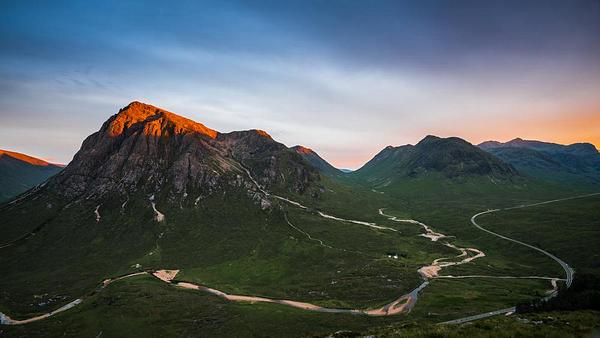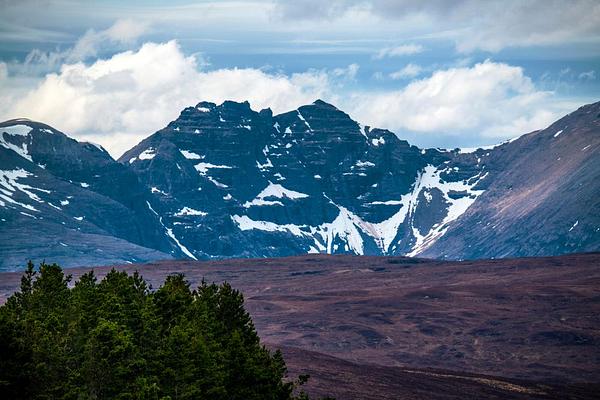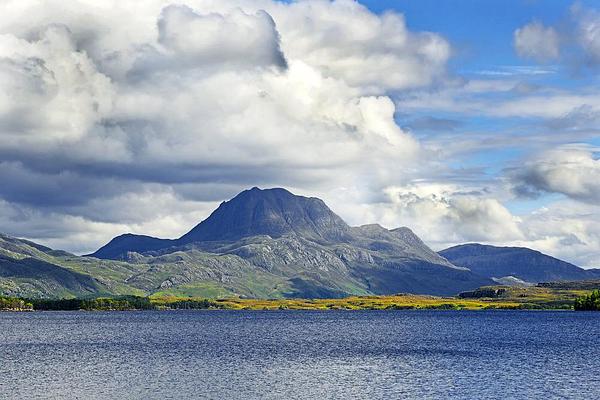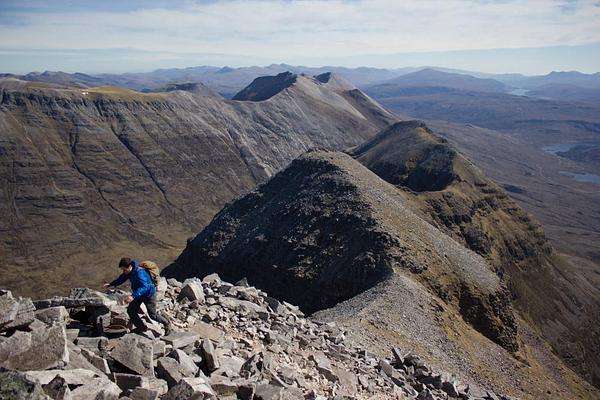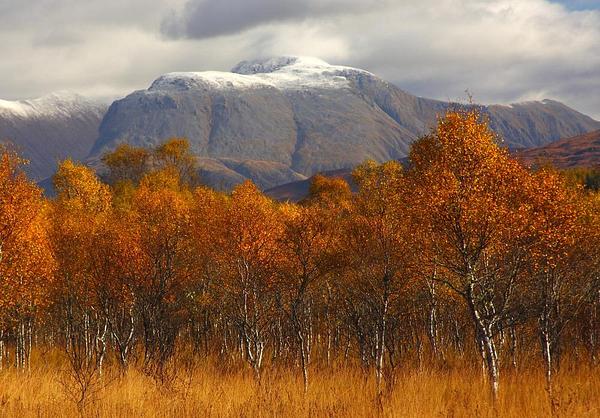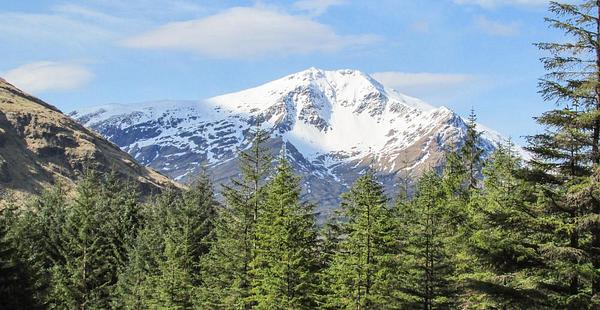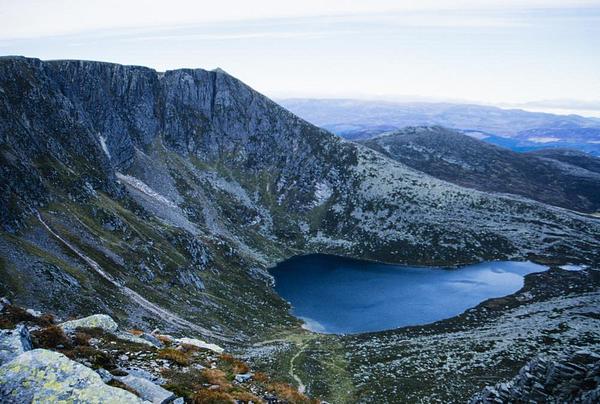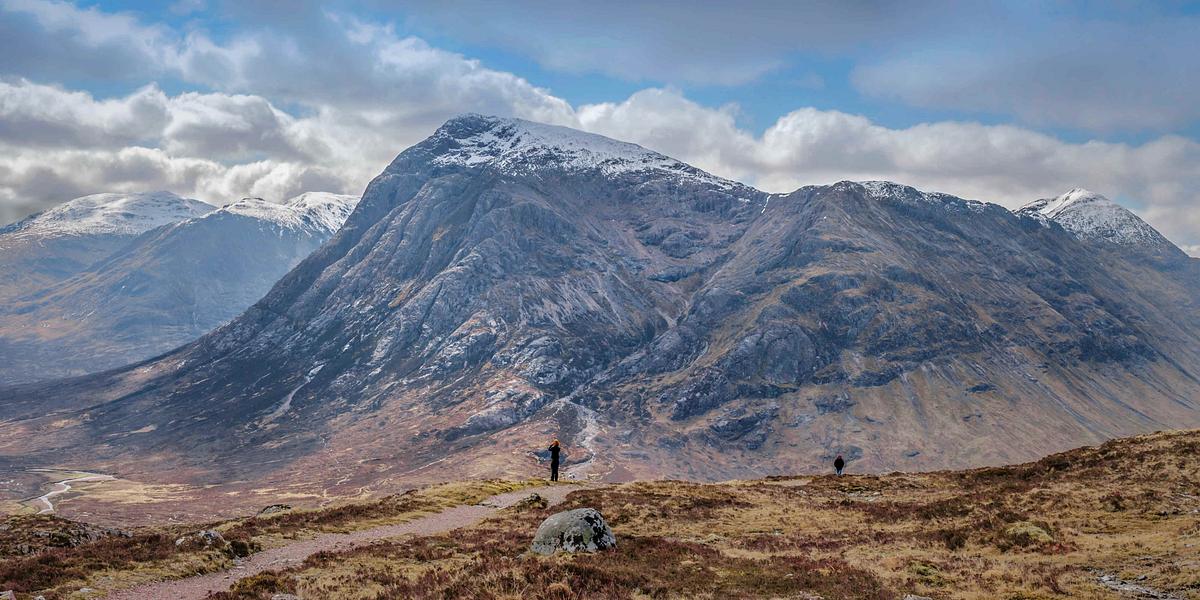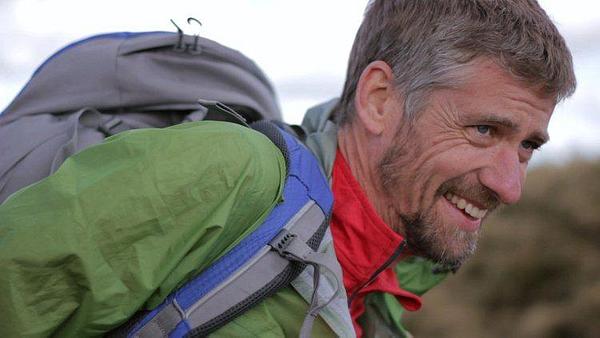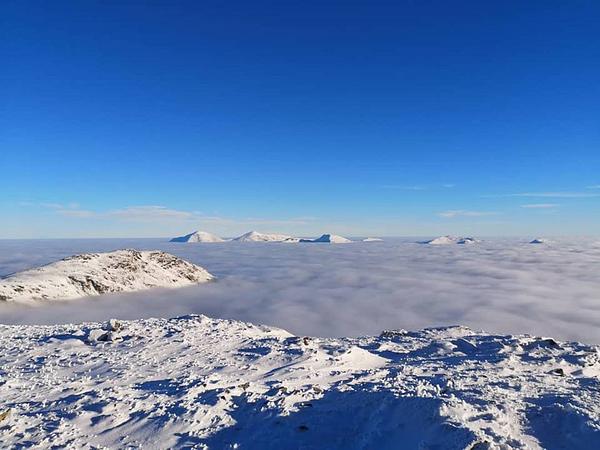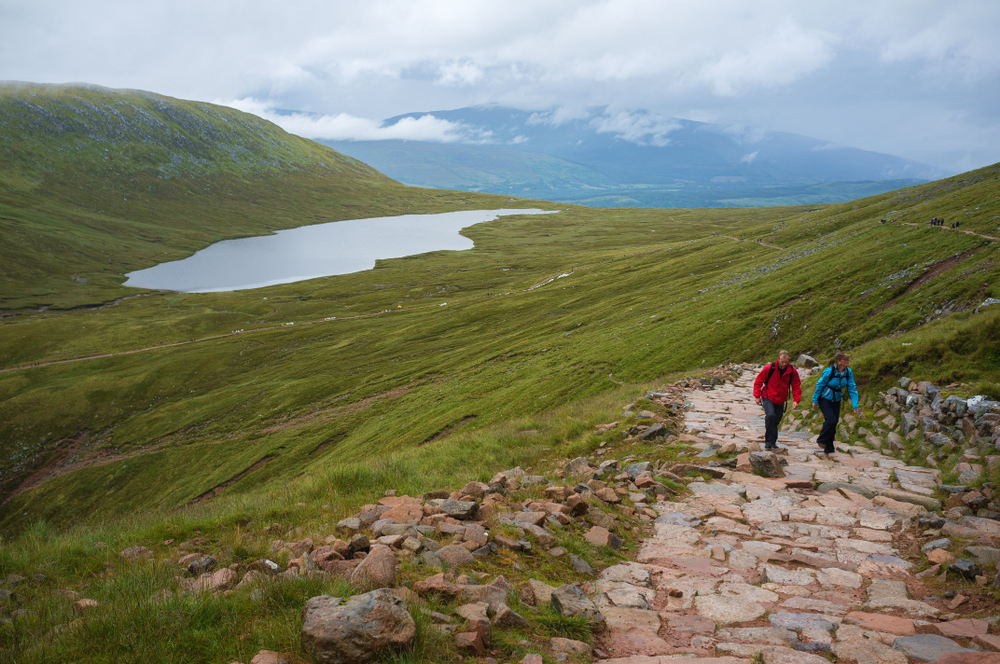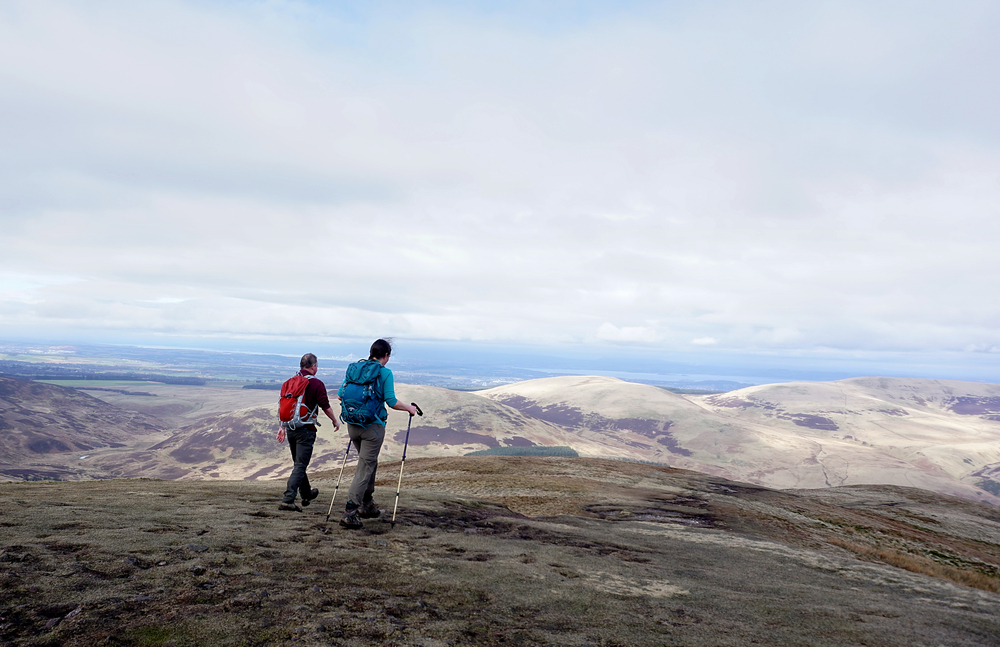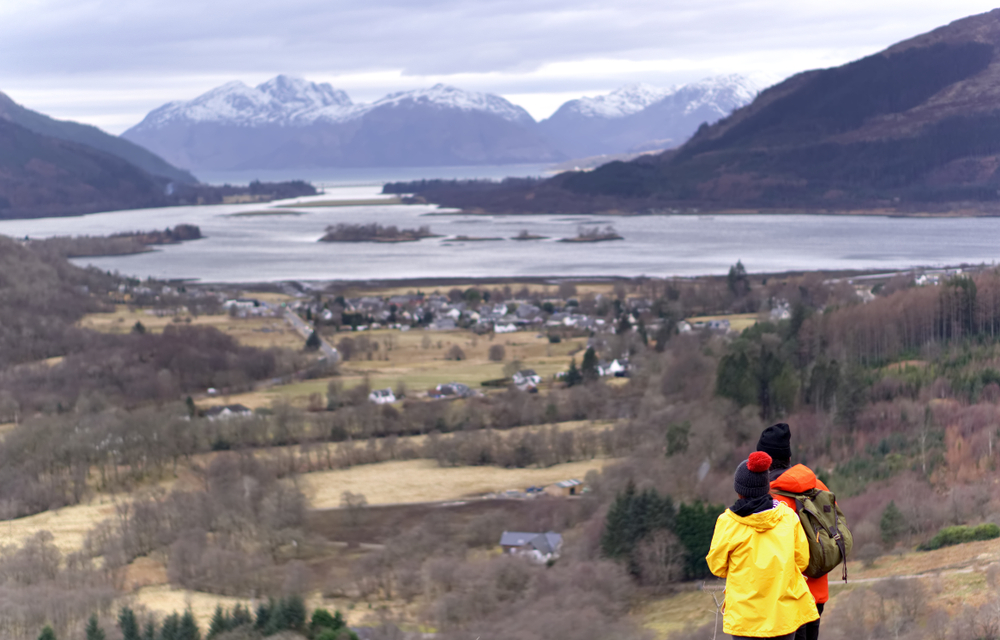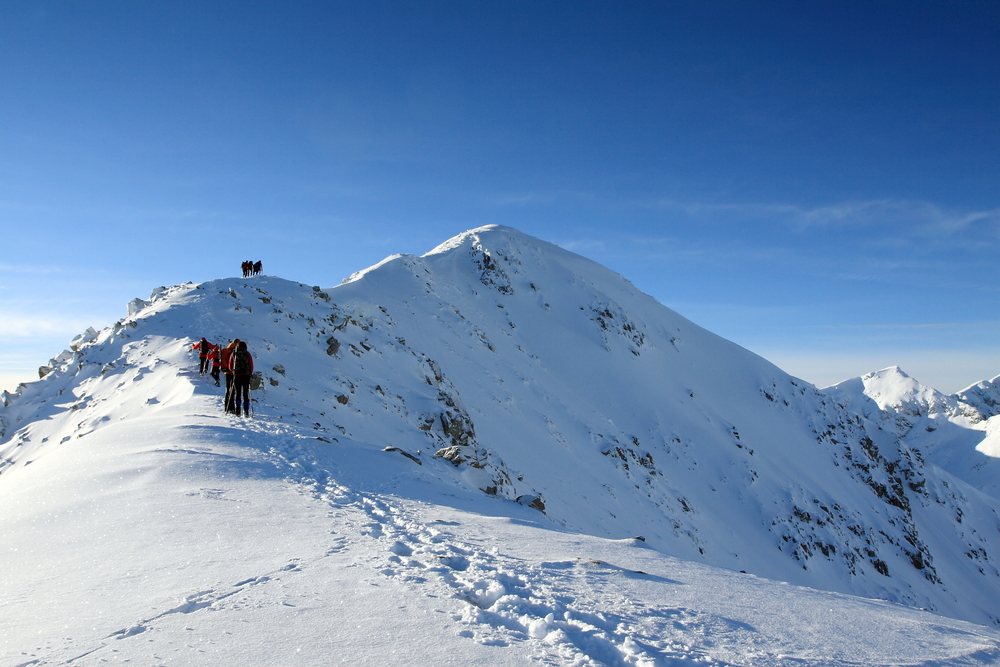
"A therapist once asked me to fix in my mind a 'safe place' where I could mentally go when facing stress," recalls mountaineer Neil Reid.
"I more or less described half the Cairngorms and she thought I hadn't understood the concept, because my safe place should be somewhere small enough that I could know intimately and call to mind easily.
"But the Cairngorms - Glen Lui into Glen Luibeg and the Derry, and over into Glen Dee - I already knew them intimately and they have always been my 'safe place'."
And for many, Scotland's highest mountains, the Munros, are the perfect place to alleviate the crushing symptoms of a mental illness.
There’s no easy answer to escaping the day-to-day stresses, strains and pains of life, but for us Scots a part of the solution could be on our doorstep.
Wild beauty
The beauty of Scotland’s highland and island landscape is a badly kept secret - hardly a week goes by without a travel guide, blog, outlet earmarking them as a ‘Must visit destination’ for the year 2018, 2019, ad infinitum.
Navigate an ancient beaten track and one may encounter only rugged mountains, sweeping moors, placid lochs, trickling streams, roaring gorges and, if you’re lucky, one of the buzzing, wild residents that make their home in this peaceful, but unforgiving wilderness.
The landscape gushes with its own unique palette of colours; moors yellow and orange, heathers purple, rolling slopes a dark green and scarred mountains grey.
It’s peaceful, heavenly and might as well be a million miles from the hectic cities and towns which pepper Scotland’s central belt and swoosh up the country’s East coast - and a million miles further from the problems we endure at home.
Punctuating the sublime outdoors are 282 peaks over 3,000 feet. Stretching from the banks of Loch Lomond in the South, to the periphery of the mainland’s northern boundary, via the Isles of Mull and Skye, the near uninhabited regions of Knoydart and Assynt and countless other beauty spots.
These hills, mountains and pinnacles are known as Munros.
Each of the 282 peaks are unique in their beauty and character, ranging from rolling lumps of heather strewn hill, accessible via a short, “leisurely” walk, to jagged peaks, accessible only by a treacherous scramble on all fours.
Immersing oneself in this Caledonian Garden of Eden can reap a variety of wellbeing benefits.
Take a look at some of Scotland's most celebrated Munro walks:
The variety of Scotland's landscape has a magnetism for outdoors enthusiasts and has a habit of improving the mood of those who immerse themselves in its riches.
Twenty-two-year-old hill walker Ian Park, who has lived with OCD and depression, notes the variety of beauty that one can encounter when trekking Scotland's hills - and the mental health benefits this can deliver.
"There is always something else to see or place to go and it never fails to inspire. Hillwalking is my excuse to get outdoors now, although time constraints can often mean you can't revel in it for as long as you'd like!
"I think for the time that you are out there, it relieves entirely any depressive feelings I have."
Keith Foskett, the author of High and Low: How I hiked away from my depression across Scotland concurs: "I visit Scotland's highlands because they're drop dead gorgeous, there’s the wilderness factor, there’s big mountains.
"You could be hundreds of miles from anywhere."
Sam Tolworthy, a Caithness climber looks to the landscape's hardy flora and fauna residents as inspiration.
"I get inspired by the way life clings to almost every surface, whether it's a tiny plant managing to thrive and bear fruit on half an inch of windswept peat, or ptarmigans hanging out on a rocky cliff edge."
Explore and interact with our map which pinpoints the location of all 282 Munros
In recent decades the phenomenon of “Munro bagging” has exploded, with thousands setting off into the hills with the end goal of climbing all 282 of the 3,000 feet and higher peaks, earning the status of Munro ‘Compleatist’ - a hard-earned title indeed. Thousands more set less lofty goals, whether it be to climb 100, ten or a solitary Munro.
unreachable by any mode of transport other than your own two feet and forming a bond for life with fellow walkers, ramblers, baggers and garnering intimate knowledge of Caledonia itself.
With each Munro climbed, a walker takes a tangible step towards a longer term goal, but perhaps the beauty of the Munros is that it can be broken down into several shorter term goals, be it climbing all 3,000m + peaks in the Perthshire region, ticking off 5 Munros in a month, or climbing the country’s most northerly Munro.
Debbie Hampton of Best Brain Possible explained the long-term mental health benefits of goal-setting, stating: “Quite simply, setting goals can help you grow as a person.
“One of the biggest satisfactions in life is seeing your life evolve in a positive, healthier direction and reaping the rewards. Thus, working towards and achieving goals can give your self-esteem a boost, which can improve your overall mental health and life satisfaction.”
Escape to the country
The typical 21st century workplace can often look like a labyrinth of dull office spaces punctuated with glaring computer screens and desks overloaded with a neverending pile of paperwork.
For some it can all become too much.
In the last two years nearly 15.4 million working days were lost due to job-related stress, anxiety and depression in the UK, according to the Health and Safety Executive, with causes ranging from workload and lack of support, to bullying.
When the end of the working week comes around it can be all too tempting to hit the town and let off steam, or hide away in ones bedroom, both of which can exacebate mental health symptoms.
But, the refuge of Scotland's countryside and the call of the Munros can help to distract from the difficulties of working life.
Walkhighlands member Caberfeidh explained how the hills helped him to cool off after an overwhelming spell of work.
"I used to have a very stressful job, working in a busy hospital unit where I was rushed off my feet twelve hours a day or night.
"A lot of my friends and colleagues from hospital work have succumbed to depression and suicide over the years.
"I had to escape to the hills as often as possible to calm down and cool off."
Caberdfeidh believes that humans are more at home in the outdoors than in the office.
"I believe our minds are honed by evolution from our hunter-gatherer past to enjoy walking through hills and glens, canoeing along lochs, camping in peaceful surroundings and sitting around campfires.
"This stressful mad rush which life has become since the Industrial Revolution is too much for our primordial minds and can be very unhealthy for us. A balance needs to be found between working in the modern world to enjoy the benefits of progress and relaxing in the real world of quiet hills, lochs and heather."
Neil Reid, meanwhile, finds that retreating to the hills and maintaining bothies allows him to simplify his life in a positive fashion.
"When you go into the hills you're removing yourself not just from the stresses of daily life but also the supports, so whether you're away for a day, a weekend or even longer, you are responsible to and for yourself.
"That gives you a mental freedom in one sense but also reduces your responsibilities and goals to something very simple and easily defined; in everyday life everything can seem so cluttered, with complex interrelations and interdependencies, so when you're just looking after yourself, with clearly defined goals (whether they are reaching the top of a hill or of a rock or ice climb, or simply travelling through and living in and enjoying the mountains and nature) it gives a clarity and lack of confusion.
"In my head I'm a mountaineer and stravaiger who has to work for a living. It's a long time since I've identified myself by my job."
For Keith Foskett, however, long-distance walking is more than just escaping from the day-to-day stresses of life - it's about reaching a space where you can reflect on your job, your mental health, your family, without being overhwhelmed.
"When I go out for a walk I have half an hour of what I call head noise, before it all calms down and I use that time to think about my big problems."
It was when walking amongst Scotland's mountains that Foskett was able to take a step back from his stressful life and realise that he was in fact living with depression. During an epic 600 mile hike across the country he came to terms with his mental illness and formulated a plan for battling his demons.
Like Foskett, Sam Tolsworthy used his days in the hills as a chance to assess life at home when he divorced his wife.
"Following my divorce I found it hard to focus on anything else, it was like some kind of dream.
"I kept some routine going, and looked for distractions. One of the distractions was hill-walking.
"Out on a hill I could think about the situation without it seeming overwhelming - the environment gave me a different perspective."
Social climbing
Despite their remoteness, Scotland’s mountains have a habit of bringing people together in one form another, often forging friendships for life. Navigating often treacherous terrain in changeable conditions as a team, sharing views of staggering beauty and ruminating on life will do that to you.
According to Dr Dayna Yorks, lead researcher at the University of New England College of Osteopathic Medicine, exercising as a group can significantly improve mental health.
“The communal benefits of coming together with friends and colleagues, and doing something difficult, while encouraging one another, pays dividends beyond exercising alone."
During a study conducted by the North American university medical students who exercised with partners or groups over a twelve-week period were found to enjoy an increase in mental wellbeing and emotional stability.
But climbing alone doesn’t make you exempt from these social benefits.
Once one has climbed their first Munro, access to a special club of sorts is gained. Away from the hills fellow climbers can compare their days in the hills, recommend potential routes and daydream about future adventures - with hundreds of potential day trips to undertake there’s plenty to dissect.
Walkers can also expect a nod, a wave or a chat when out on the hills from fellow walkers tackling the hills. Ian Park notes: "I don't think there is anywhere where people are friendlier than when you pass them by on a hill walk."
The mental health benefits of building new social bonds are blatant. Social isolation has long been a key trigger of mental illness, while supportive networks of friends, family members and fellow hobbyists can be key to alleviating mental illness symptoms.
For mountaineer Neil Reid, the Highlands have served as a breeding ground for lifelong friendships and even marriage.
"I met my wife in the mountains, and almost all of my closest friends I've met through the mountains, whether from climbing and walking with them or through the volunteering I do with the Mountain Bothies Association."
What are you waiting for?
Whether you go it alone or with a friend; whether you use the Munros as an escape or an excuse to get close to nature; to slow down or get your heart-racing, there's likely something that the hills can do for you and your mental health.
We Scots shouldn't take this beauty, this playground, this open-air headspace on our doorstep for granted for few countries can boast access to such a contrasting and life-affirming landscapes.
So give the hills a go.
Who knows, once you "tick off" your first Munro and begin your journey towards that magical three-figure number you too could find the "safe place" that mountaineer Neil Reid uncovered all those years ago.



